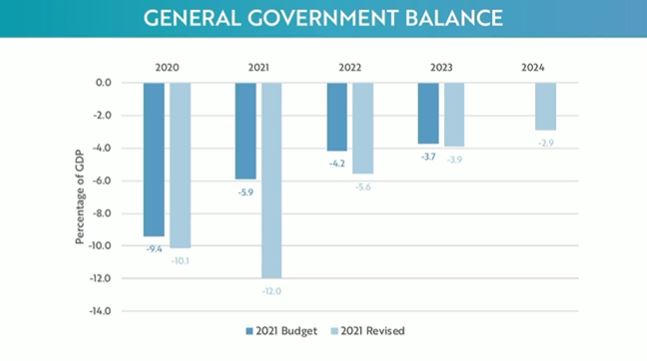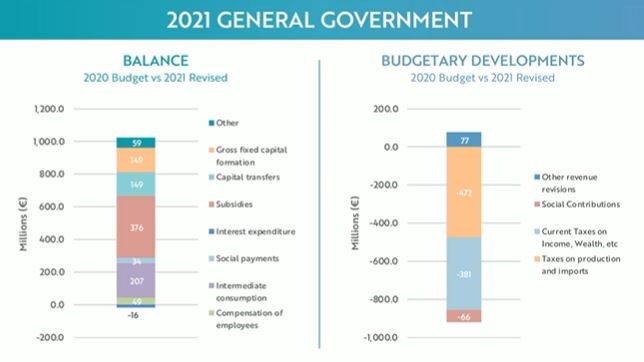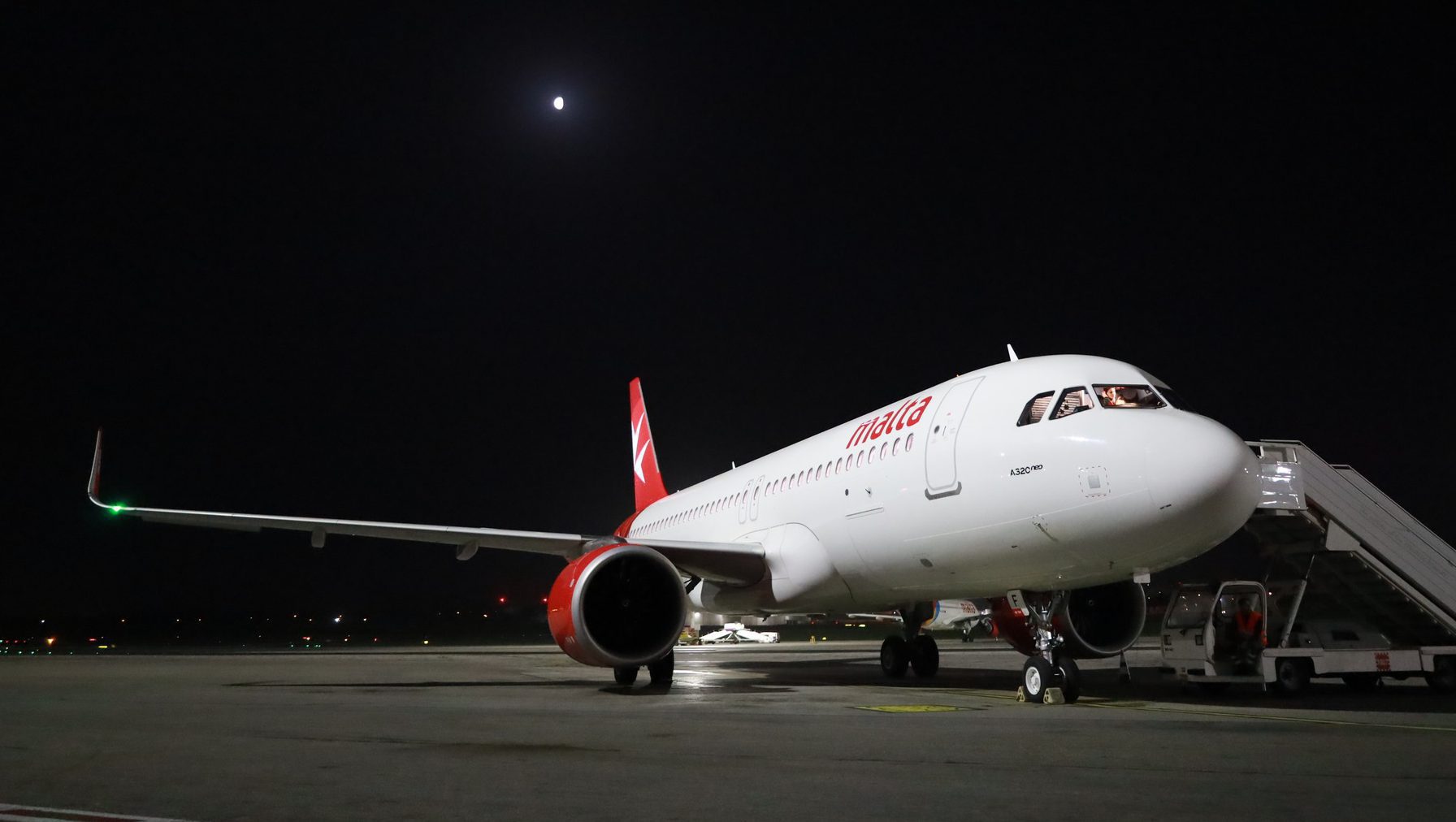The COVID-19 pandemic has impacted Government finances to the tune of €5 million a day, Finance Minister Clyde Caruana revealed on Tuesday, a figure he described as “surprising even to me”.
Speaking at a press conference about the impact of the pandemic on Government revenue and expenditure for 2020 and 2021, Minister Caruana broke down the details behind the headline figures in a bid for transparency in Government’s handling of the public purse during these unprecedented times.
The €5 million hit is made up of an increase in expenditure by €3 million a day and a loss of revenue of €2 million a day.
These contributed to a deficit in 2020 that reached 10.1 per cent, while the deficit for 2021 is projected to reach 12 per cent, over double the 5.9 per cent initially projected.

This is primarily attributed to the increased duration of the pandemic beyond what was projected, and the Government’s commitment to support the economy as long as needed.
Minister Caruana said that it would be premature to stop economic assistance at this early and sensitive stage.
He added that both 2020 and 2021 were previously expected to generate surpluses, emphasising the profound impact of the pandemic on Government finances.
He singled out the plight of the tourism industry as a key contributor to this sharp decline.
“If you look at 2019,” he said, “Malta received 2.8m tourists spending €2.2bn. Compare that to last year, when we only welcomed 660,000 tourists, who spent €445 million.”
He noted that this represented a fall of 80 per cent, and therefore had a significant impact on public finances.
Minister Caruana said that the deficit is expected to fall to 5.6 per cent in 2022, then to 3.9 per cent in 2023, and to 2.9 per cent in 2024, bringing Malta in line with the Maastricht Treaty rules.
He stressed that this improvement of the Government’s financial situation would not be coming from an increase in taxes or the introduction of new ones.
“The economy needs certainty to grow,” he said. “It is important that we send the message that this Government’s vision over the last years will continue for the foreseeable future.”
While Malta’ public debt increased, it remains one of the lowest rate of debt in the EU.

“This shows,” said the Minister, “that Government finances are sustainable, and that there is still room to provide further support.”
Breaking down the figures in more detail, Minister Caruana looked at 2020, when it was predicted that Malta would have a surplus of 1.4 per cent – instead of a deficit of 10.1 per cent.
Looking into the figures behind this sharp fall, he said that expenditure increased by around €647m over what had been budgeted.
The wage supplement scheme made up the bulk of this, with the Government paying firms €384m to retain their workforce.
Other factors included the vouches scheme, which cost €43m, and the numerous repatriation flights, which cost €50m.

On the other hand, Government revenue dropped by €846m, largely due to decreased VAT income in relation to decreased economic activity.
Depressed activity also led to a drop of €72m in income from duty on documents (such as stamp duty), €63m less from customs duty, and €22m less in car registration income.
Income from corporate taxes also fell steeply, by €273 million, while income tax revenues dropped by €40 million.
All these contributed to a Government deficit of €1.5 billion for 2020.
The projected breakdown for 2021 is similar, with Malta Enterprise spending an estimated €376m in wage supplement assistance until the end of the year, while financial assistance for the floundering Air Malta is also expected to leave a hole in Government finances
Meanwhile, Government revenue from VAT is projected to drop by €309m, that from duty on documents by €86m, from customs by €85m, from car registration by 22m, from corporate taxes by €380m and from income tax by 72m.
Combined, these increased expenditures and reduced revenues will lead to a deficit of €1.6bn for 2021.
Turning to the benefits derived from the hard fiscal impact of the pandemic, Minister Caruana said that Malta can now claim to have the strongest empoyment market in Europe.

“This,” he said, “puts Malta in pole position to benefit from the recovery. Other countries ran out of wind and fell behind, but we remain in a stable financial positional with the best economic growth outlook in Europe.”
“Anyone who has even briefly studied economics will know that the time for Governments to spend is precisely now. We need to support workplaces from closing so that they are ready to hit the ground running once circumstances improve.”
Annual STI testing for non-EU massage therapists amounted to ‘slander,’ admit health authorities
Health authorities kept quiet about changes to the legal provisions
KM Malta Airlines announces extra flights and special fares for MEP and local council elections
To qualify for special fares, all travel needs to take place into and out of the same city
European Parliament adopts regulation making it easier for companies to be paid on time
The maximum credit term under the new Late Payment Regulation is to up to 120 days, for some sectors






